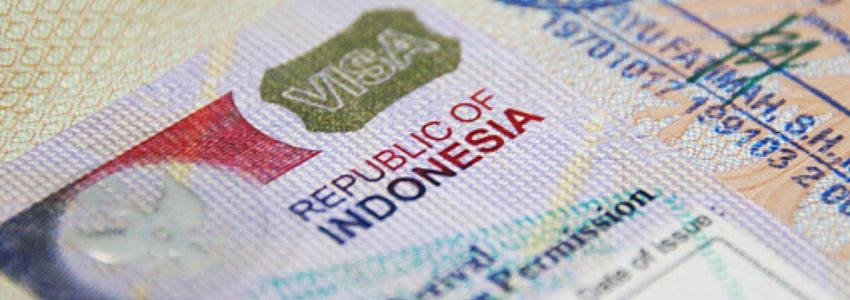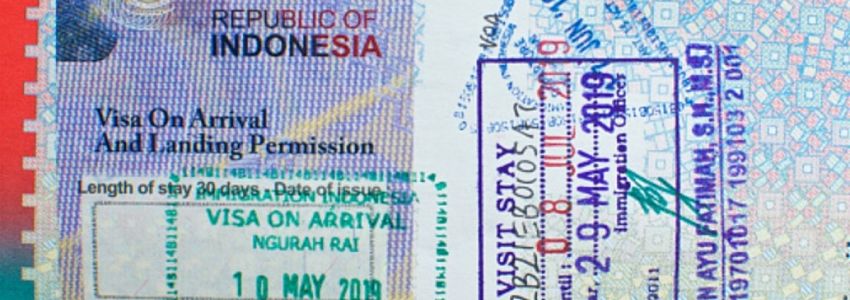
In recent years, the Indonesian government has introduced several types of visa to accommodate digital nomads, and remote freelance workers.
Indonesian authorities are aiming to attract more long-stay international travelers to its many attractive islands, including the popular tourist destination of Bali.
In this post, you can find details on different visas available for remote workers in Indonesia, including eligibility requirements and how to apply.
Why Has Indonesia Introduced Visas for Remote Workers?
The launch of digital nomad visas in Indonesia represents a move away from sunseeker tourism. Instead, Indonesia wants to move towards a more sustainable model, focusing on long-stays trips for ecotourism and spiritual retreats.
“In the past, the three S was: sun, sea and sand. We’re moving it to serenity, spirituality and sustainability. This way we’re getting better quality and better impact to the local economy”, Indonesia’s tourism minister Sandiaga Uno said of the new visa schemes.
Formerly, digital nomads could only stay in the country for just a few months. There are now a number of visa options for remote workers and freelancers to extend their stay in Indonesia.
Types of Indonesian Visas for Digital Nomads
All visas for Indonesia have different eligibility criteria. Some are suitable for all types of remote workers — freelance, a self-employed digital nomad, or as a remote work employee for a company.
Check the requirements for each type of visa to find the one that best suits your circumstances.
Remote Worker visa: E33G for Indonesia
The E33G was launched in April 2024. This visa is specifically designed for digital nomads who work for a company based outside of Indonesia. It’s also known as the E33G KITAS.
The Remote Worker visa allows you to:
- Stay for up to 1 year, and extend for another 12 months
- Enter and leave the country multiple times while the visa is valid
- Bring family members to Indonesia during your stay
- Open an Indonesian bank account
How to get the Remote Worker visa
To be eligible, you need a yearly income of at least USD 60,000, or the equivalent in your home currency.
To apply, you must provide bank statements which show a minimum balance of USD 2,000 for the last 3 months. You’ll also need to give a copy of your remote work contract.
Make your application online through the Indonesian government visa site. If you apply from abroad, you’ll be issued a visit visa and will have to complete the E33G process once you arrive in Indonesia.
Indonesia’s Second Home visa for digital nomads
The Second Home visa allows you to buy a home in Indonesia, and is designed for foreign nationals who plan to stay in Indonesia long-term. You can apply for a 5 or 10 year Second Home visa.
It allows you to work remotely for a foreign company or as a freelancer. You’ll also be able to invest in some entities in Indonesia but cannot do paid work in the country.
You must show proof of funds — at least USD 125,000 — to apply.
It’s not possible to apply for the Second Home visa from your home country. First, you’ll need to travel to Indonesia with an eVisa, and then visit a local immigration office to make your application. It usually takes around 7 to 10 days to get a decision.
Standard Visit visa: B211A for short-term remote work
If you’re looking for a short-stay visa that allows you to work on digital projects during your trip, you may be eligible for a Standard Visit visa. It’s the easiest way to visit Indonesia.
It’s valid for:
- Trips of up to 60 days
- Single entry to Indonesia
- Tourism, remote work, business visits
Apply online to get your B211A visa online. You’ll need to show you have at least USD 2,000 to cover your trip, and proof of onward travel. It usually takes 1 to 2 days to process your visa.
Once you’ve arrived, you can apply for extensions of up to 120 extra days at local immigration offices. If you want to extend your visa, do so before it expires.
Does Bali Have a Remote Work Visa?
Your visa for Indonesia is valid for all regions of the country, including Bali.
Whether you’re traveling with a visit visa, or as a more permanent resident with a Second Home, or Remote Worker visa, you’ll be able to visit or stay in Bali.
Information for remote workers: Bali Tourist Tax
Almost all passengers arriving in Bali must now pay the Tourist Tax. It’s designed to help support Bali’s natural environment and cultural heritage.
Remote Worker and Second Home visa-holders are exempt from paying the Bali Tourist Levy. If you’re traveling with another type of visa, you’ll be required to pay the tax each time you enter the region.
Planning on visiting Bali with a visit visa? It’s easy to pay the Bali Tourist Tax online before you travel.


